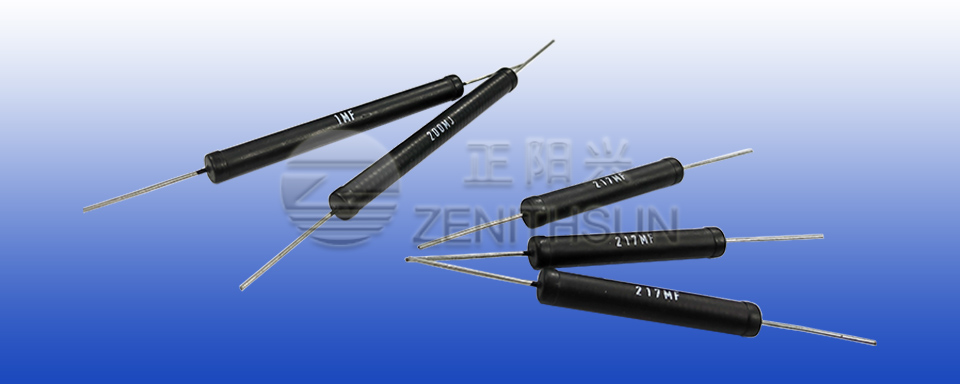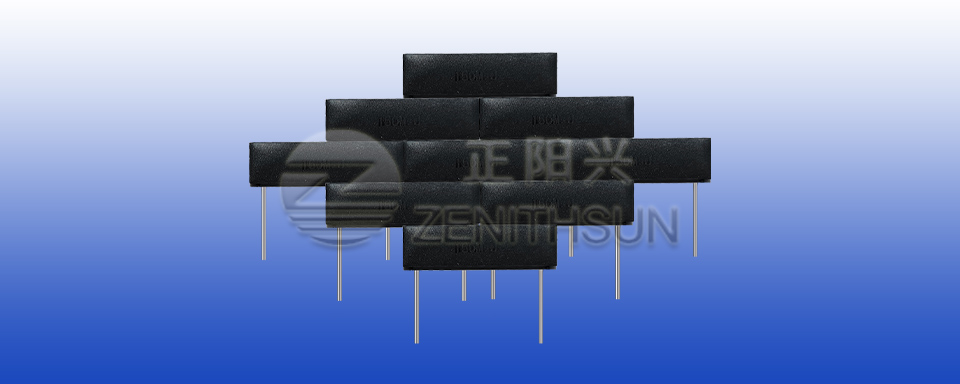High Voltage Resistors are resistive devices that can withstand high voltages. Generally, resistors with a rated voltage of 1 kV (kilovolt) and above are called high voltage resistors, and the rated voltage of high voltage resistors can reach hundreds of kilovolts.
There are various types and structures of high voltage resistors. High voltage resistors have high resistivity and the material itself has high dielectric strength, so they can work stably in harsh environments such as high voltage, high temperature, and high humidity. In addition, high-voltage resistors also need to have sufficient insulation ability and moisture-proof performance to avoid breakdown caused by high-voltage electric field. If there are special requirements, they also need to have the characteristics of anti-high frequency, anti-interference, overload and fire protection.
Therefore, high voltage resistors are a kind of resistive devices with high precision, high reliability and high voltage withstand capability, which are widely used in the fields of high voltage power supply, test instruments, electric power equipment, image recognition systems, particle gas pedals and so on.
So the high voltage resistor has the following seven characteristics:
High Voltage: RI80 High Voltage Resistors are rated for high voltages and are capable of withstanding thousands to hundreds of kilovolts.
High Resistance Value: Since high voltage resistors are usually used in high voltage applications, their resistance value tends to be larger and can reach hundreds of megohms or more.
High withstand voltage: High voltage resistors need to work stably in high voltage environments.
More Stable: High voltage resistors need to work under high pressure and high temperature environment for a long time, so their stability and reliability need to be guaranteed.
Good thermal stability: RI80 high voltage resistors are prone to drift due to high temperatures, so high voltage resistors with good thermal stability can better ensure circuit accuracy.
High Insulation: High voltage resistors need to have good insulation properties to avoid electrical breakdown and leakage and other safety issues.
High precision: High-voltage resistors are mostly used in circuits or instruments that require high precision, so a high degree of precision is necessary.
To summarize the above characteristics, the following six factors need to be considered when selecting high voltage resistors:
Rated Voltage: It is necessary to confirm whether the rated voltage of the selected high voltage resistor meets the actual need. When selecting a resistor, it should be ensured that its rated voltage is higher than the working voltage of the circuit, preferably more than double the excess to ensure that the resistor will not fail or be damaged during use.
Resistance Value: The resistance value of the selected high voltage resistor needs to be determined according to the desired circuit function and design requirements. If you need to reduce the high voltage, you can choose a higher resistance value; if you need to withstand the current under high voltage, you can choose a lower resistance value.
Resistor precision: In high-precision circuits or instruments, it is necessary to select high-voltage resistors with higher precision. If the circuit precision is not high, you can choose general precision high voltage resistors.
Reliability: It is necessary to choose high voltage resistors that can still work stably under high temperature, high humidity, pollution and other environments. For long-term or continuous use of the circuit, you need to choose a high-voltage resistor with good reliability.
Environmental protection: With the improvement of environmental protection consciousness, environmental protection high voltage resistors are also receiving more and more attention. It is necessary to choose high-voltage resistors that meet environmental standards.
Brand: It is best to choose manufacturers and brands with high visibility, good reputation and guaranteed quality.








